IMO (Pollution Prevention and Response), STOP THE MADNESS
04.04.2022
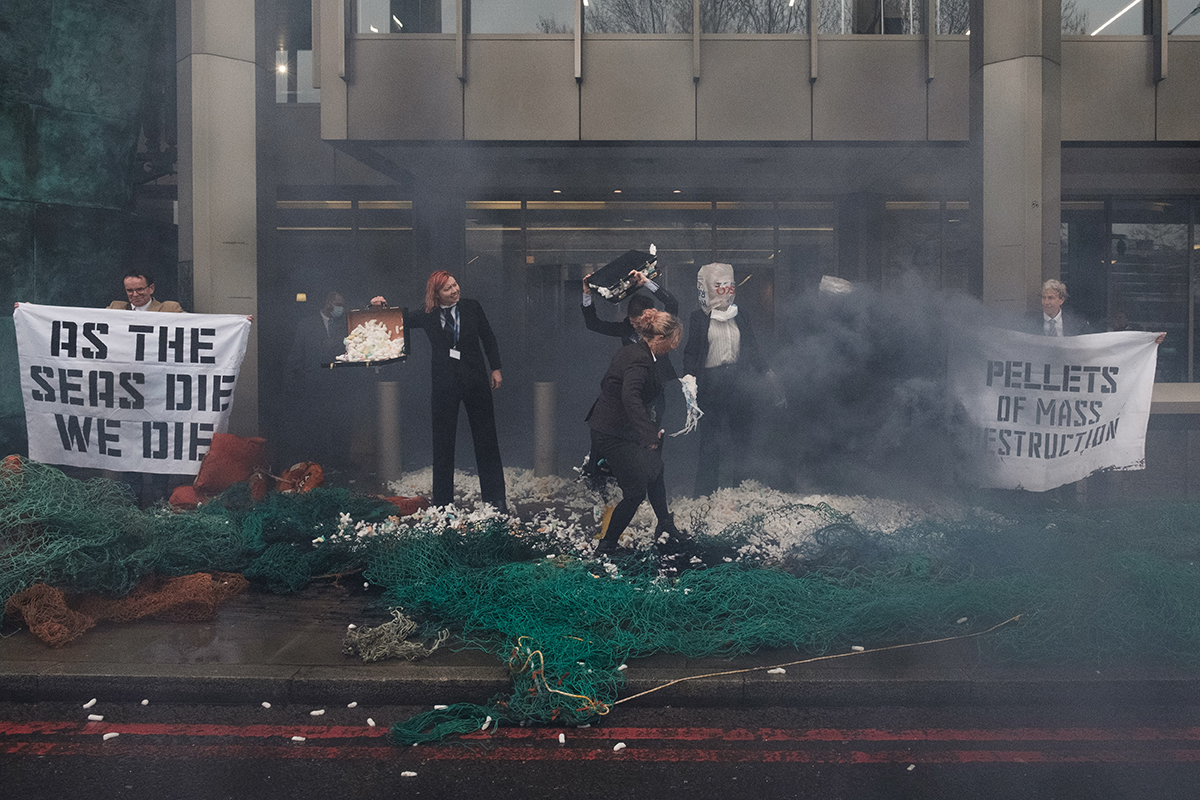
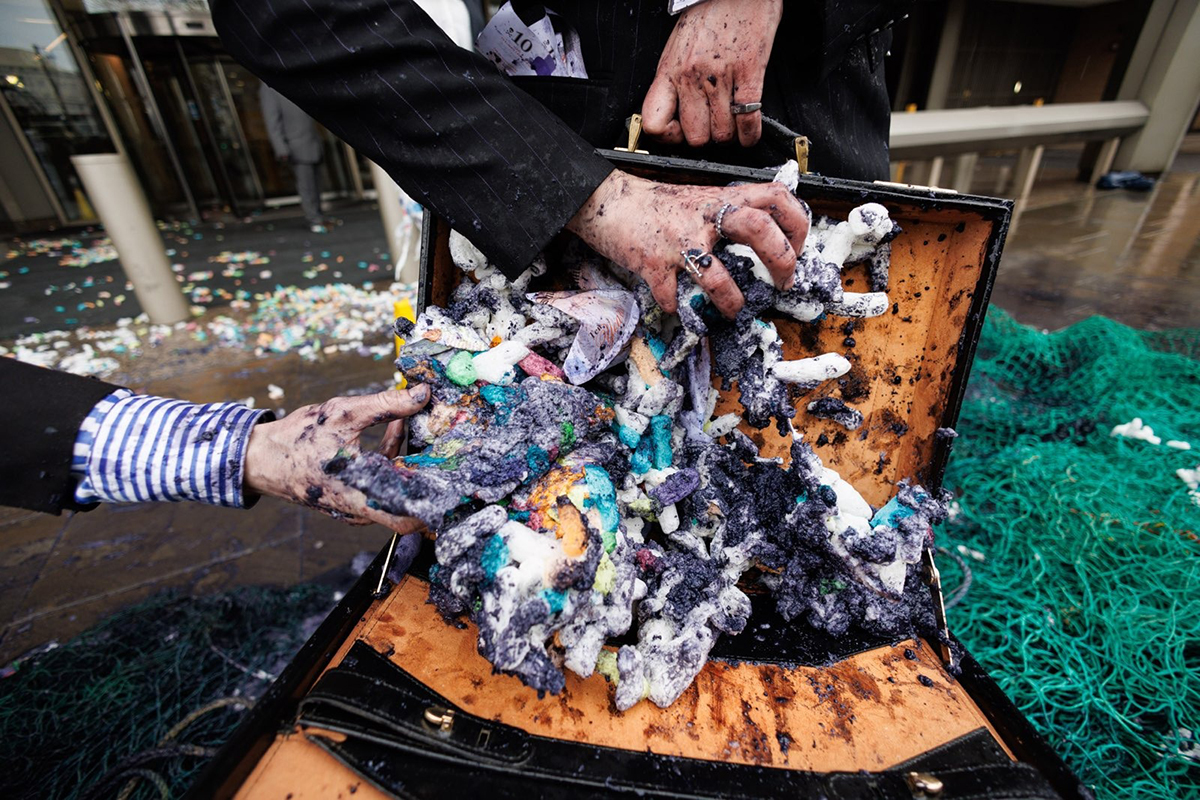
Today Ocean Rebellion revisited the International Maritime Organisation (IMO) to highlight its continued support of the oil industry, dirty shipping and plastics pollution. Suited ‘delegates’ accidently released fake ‘plastic’ nurdle pellets at the entrance to the IMO Pollution Prevention and Response (PPR) conference, nurdles coated in viscose pollutants that stuck to the ground and to delegates’ feet. As IMO ‘delegates’ struggled with the nurdles, more suited people appeared carrying ghost fishing nets and banners reading ‘PELLETS OF MASS DESTRUCTION’, ‘ALL PLASTIC IS POISON’, ‘STOP SHIPPING POLLUTION’ and ‘AS THE SEA DIES WE DIE’.
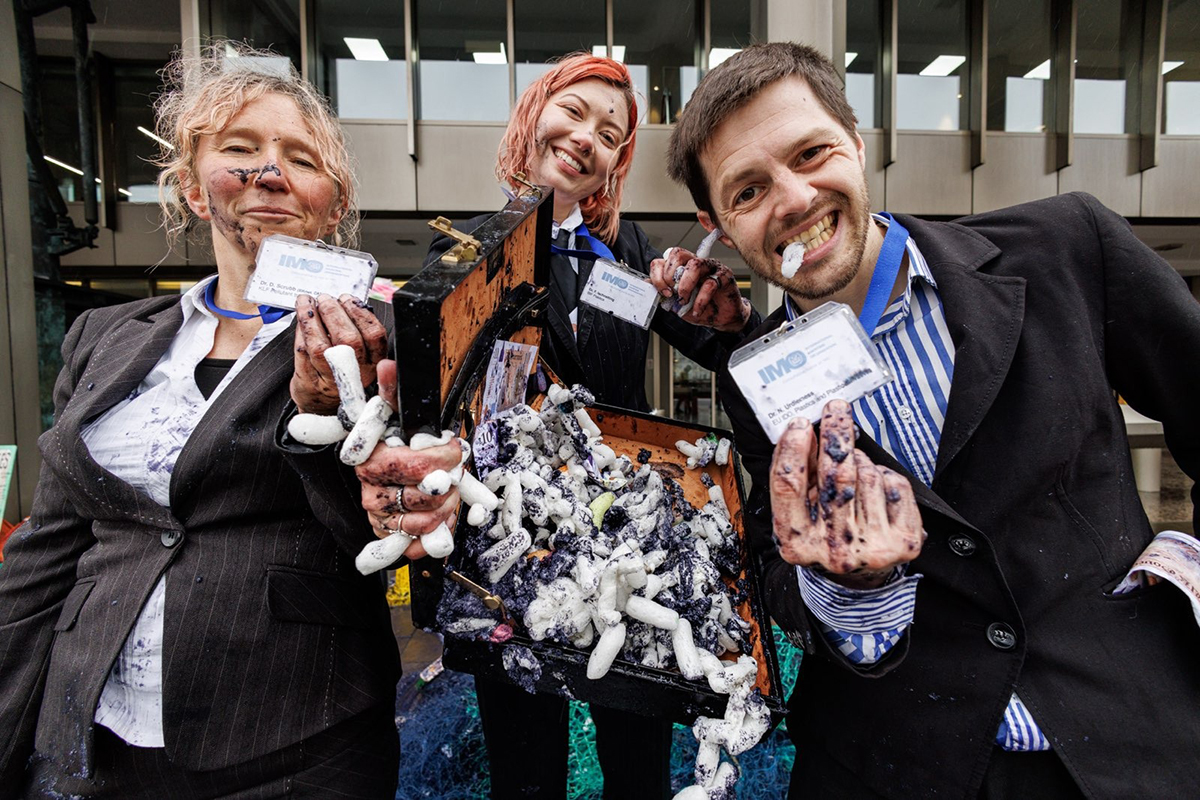
Afterwards the ‘dirty scrubbers’ cleaned up the mess.
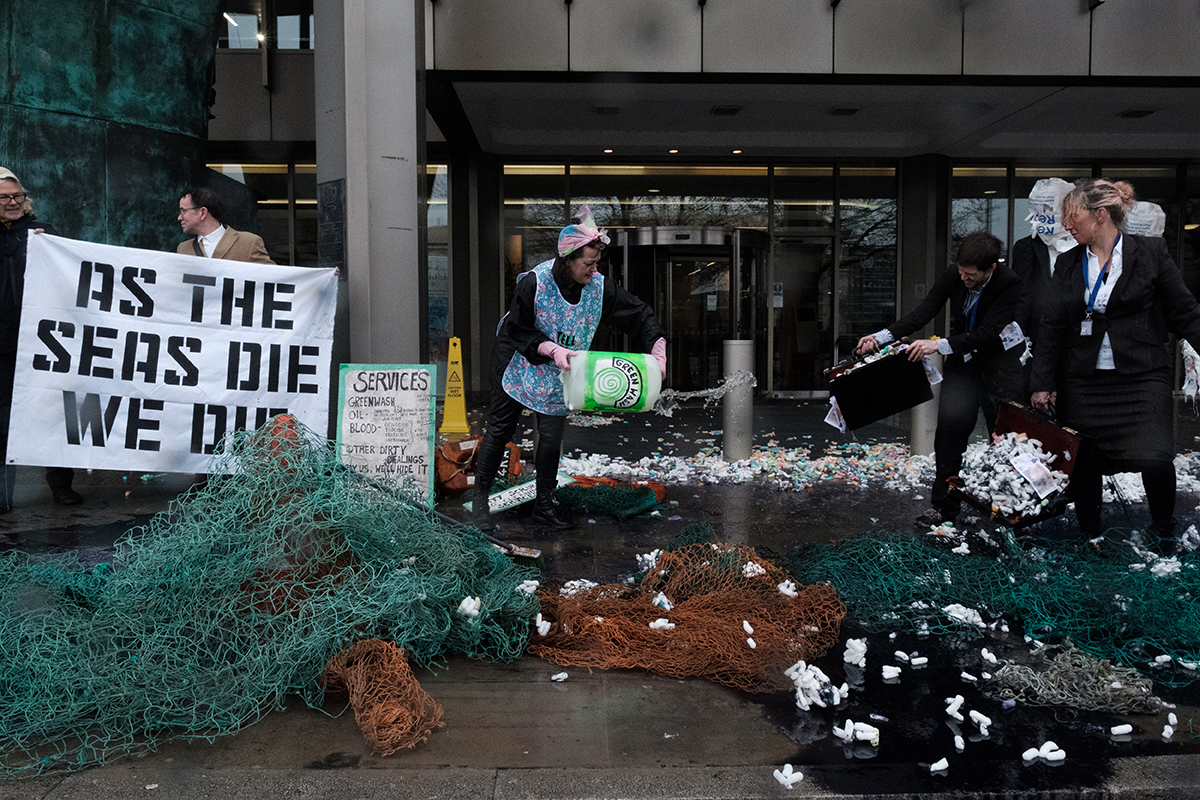
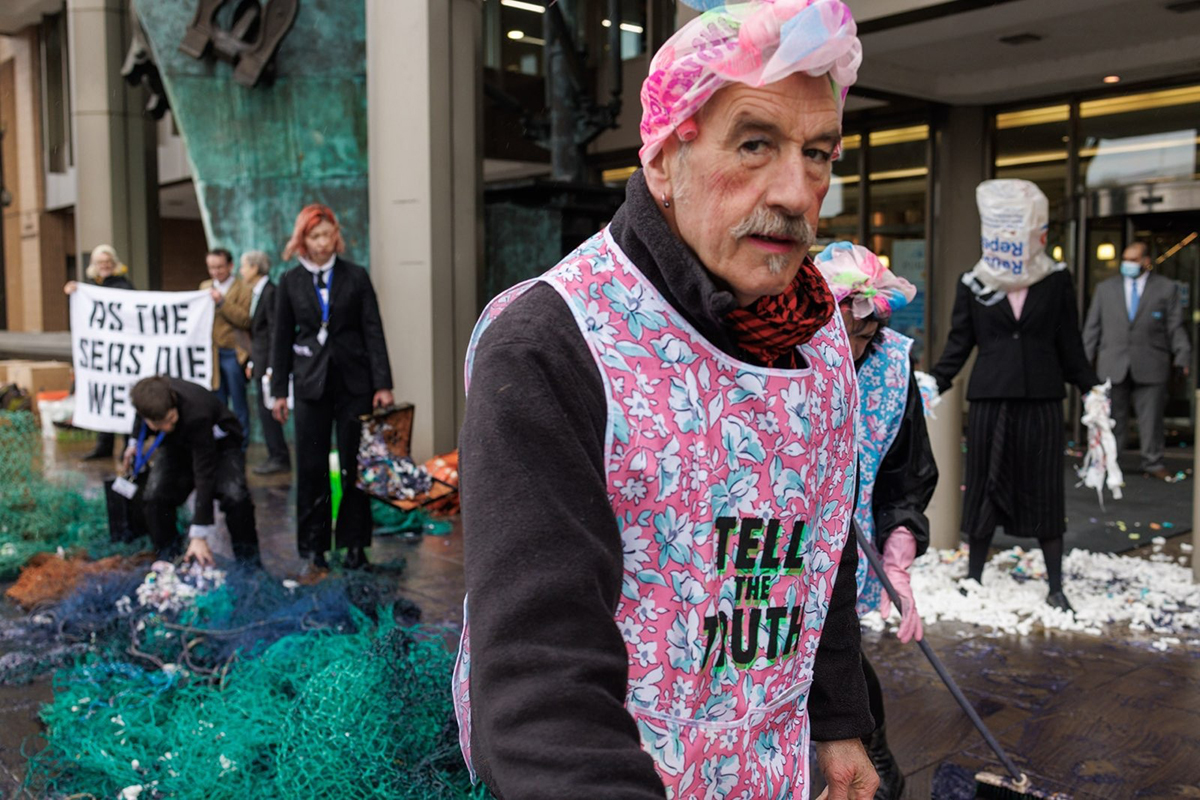
Plastic nurdles and ghost fishing nets
Plastic ‘nurdles’ and pellets are products of the petrochemical industry, they are shipped all over the world and form the basis of all plastic products. Any plastic product you buy starts life as a plastic ‘nurdle’ or pellet.
Plastic ‘nurdle’ or pellet pollution is a significant form of Ocean microplastic pollution. Its devastation can be seen in large-scale disaster incidents such as the X-Press Pearl (2021) or Trans Carrier (2020). But there’s also lots of chronic leaks and spills that take place at each and every stage of the shipping process. The evidence of these chronic leaks can be seen in the high proportion of pellets found in microplastic samples in harbours.
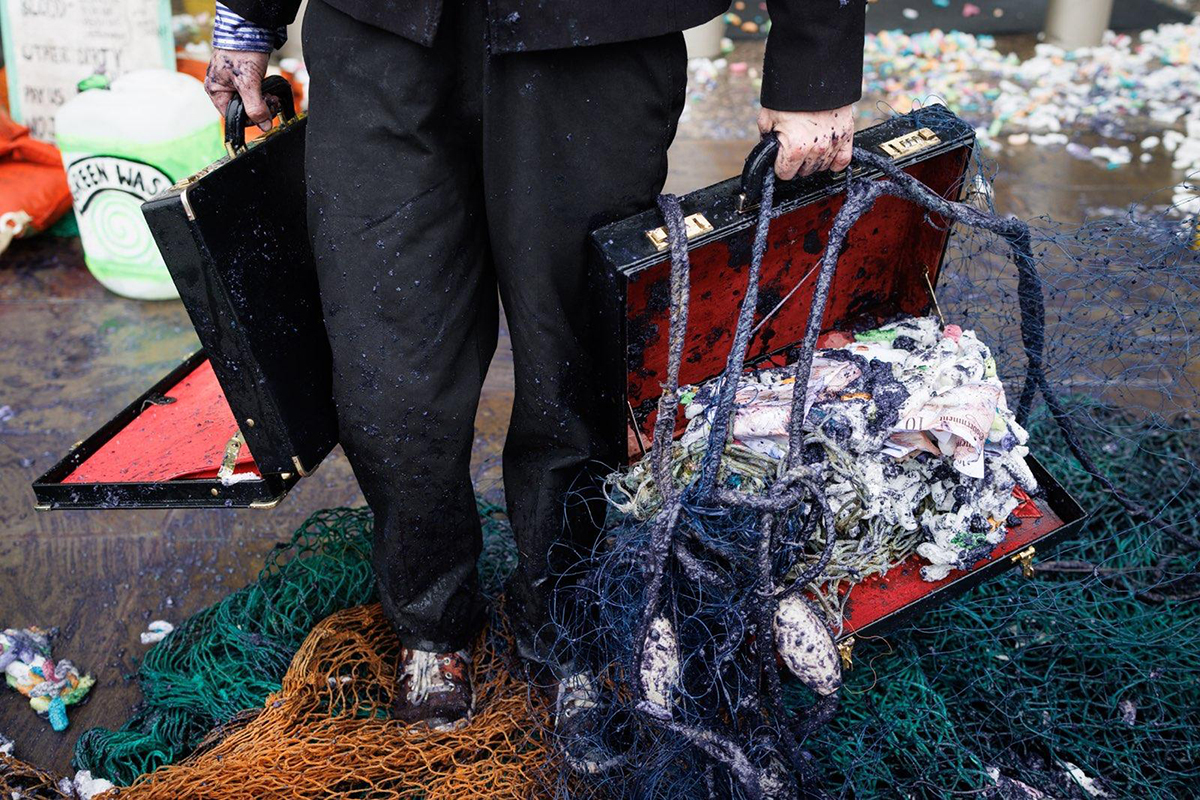
Abandoned and lost fishing gear, also known as ghost fishing nets, make up about 50% of the marine plastic debris in the great pacific garbage patch and ⅓ of marine litter in European seas. An estimated 5.7% of all fishing nets, 8.6% of all traps and 29% of all lines are lost to the world’s Ocean annually, where it tangles marine wildlife and leads to a needless loss of marine life, including protected species.

Both of these forms of pollution are preventable. Both can be managed by creating a chain of custody. If plastic ‘nurdles’ or pellets are recognised as toxic material ships have to transport this lethal product below decks. Also monitoring the shipping route at every stage ensures the owner can be held to account for any leaks that occur. Likewise with fishing nets, these can be tagged with an owner’s name and tracked by GPS. If the net or line is cut free the owner is responsible for the clean up, or the bill for that clean up.
If the shipping (and insurance) industry feels the expense of proper monitoring is too much, then what does this say about the shipping industry? Surely it means we, as consumers, are currently subsidising the shipping industry to pollute the sea?
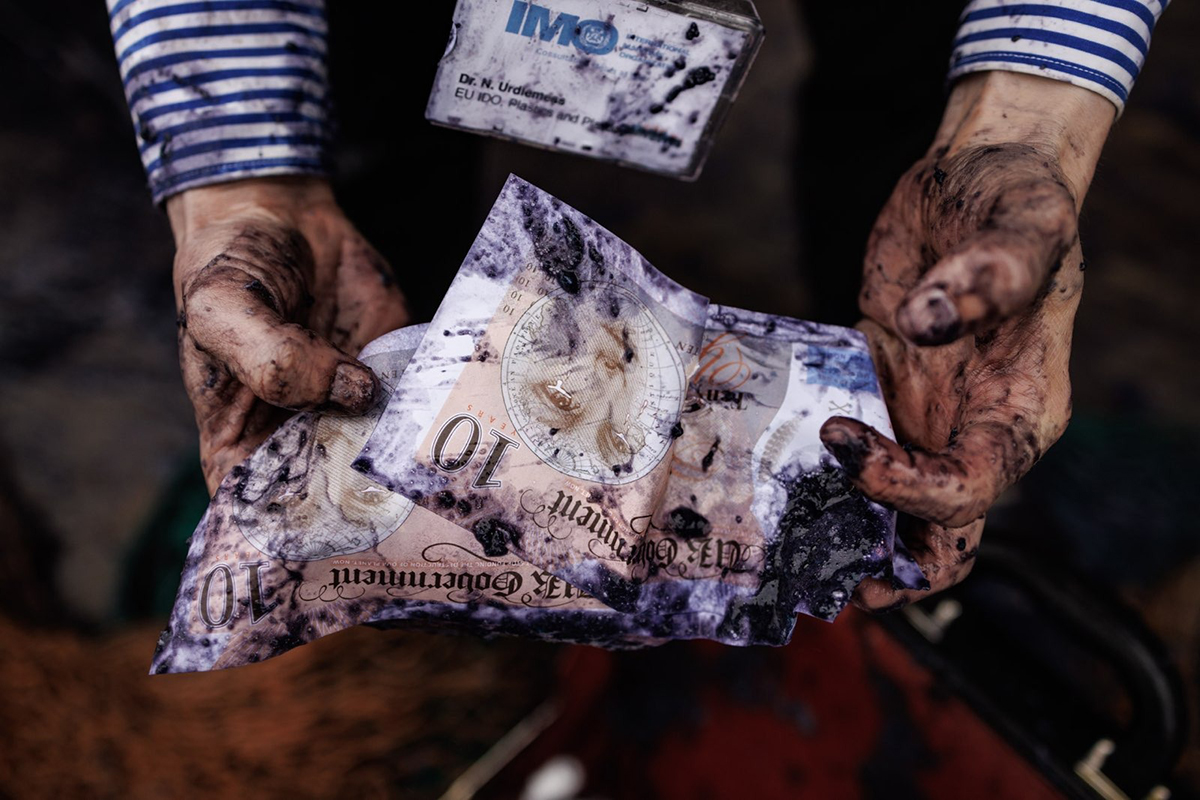
Dirty Scrubbers
Our dirty scrubbers often clean up the dirty secrets of the oil and shipping industries. Part cleaner, part greenwasher they are adept at misleading the public. But this time they’ve gone a step further.
Not only is the IMO greenwashing the plastics industry (our dirty scrubbers ably cleaned up our nurdle mess), it’s also proposing ‘scrubbers’ to do the same for ships. These scrubbers stop the worst micro particles of HFO entering the atmosphere: that’s good right? Well not if the scrubber turns it into an acidic solution and pumps it into the Ocean. So instead of polluting the air the IMO is now aiming to pollute the sea – that’s surely the definition of greenwash!
So when our dirty scrubbers empty their buckets of non-toxic byproduct into the drain, it’s a perfect illustration of what the IMO is proposing to do with the toxic byproduct of HFO – empty it straight into the Ocean. IMO’s solution is a toxic solution.
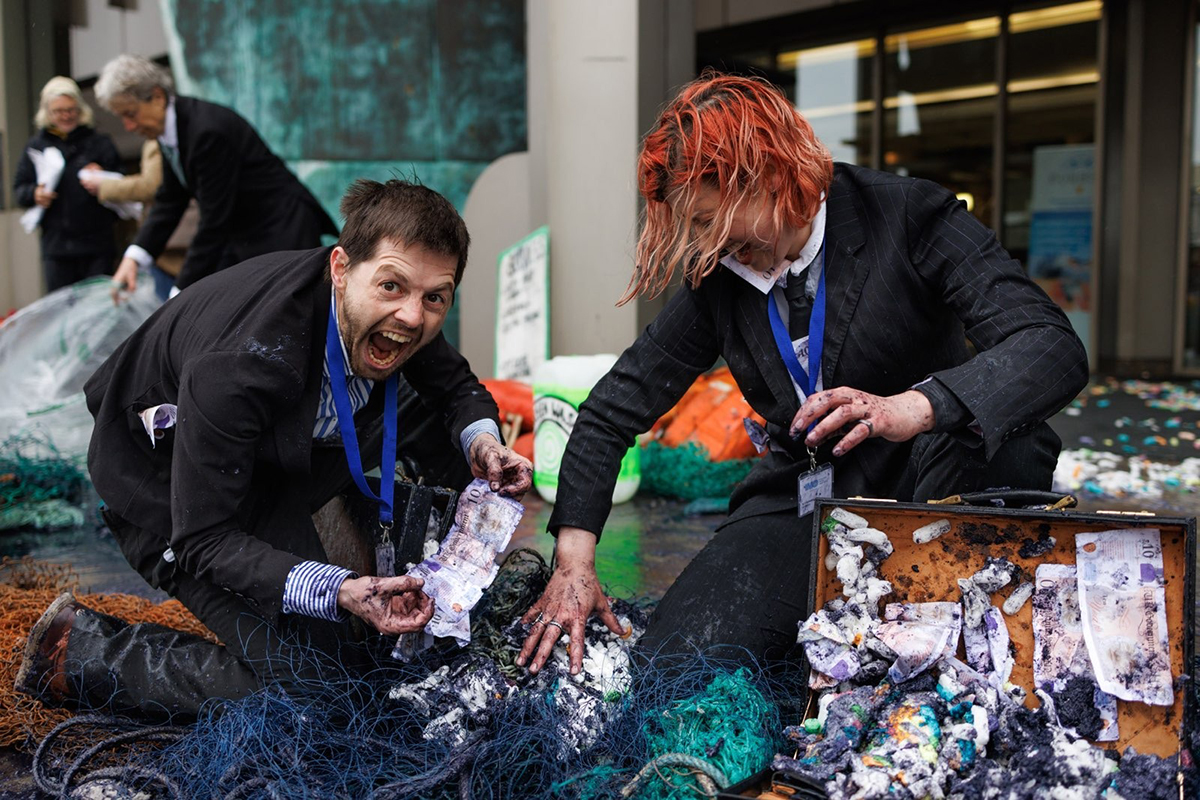
The IMO is unfit for purpose
The IMO is clearly unfit for purpose. It only acts on behalf of the shipping industry and rarely considers the environment, and when it does it proposes crackpot schemes that only benefit the shipping industry. Recent surveys have shown that ships regularly spill oil at sea, contrary to the IMO claim of significantly restricting this activity (without even checking it of course). Add this to the IMO’s continued backing of the fossil fuel industry, by not taxing shipping fuel and allowing the dirty fossil fuel byproduct HFO to be burned at sea, plus its lack of regulation of petrochemical shipping, and the list of IMO misdeeds and wrong directions begins to get very long indeed. Given this ever expanding list isn’t it time the environmental remit of the IMO is governed by another, better, UN agency? Life is too important to be squandered by inept bureaucracy.
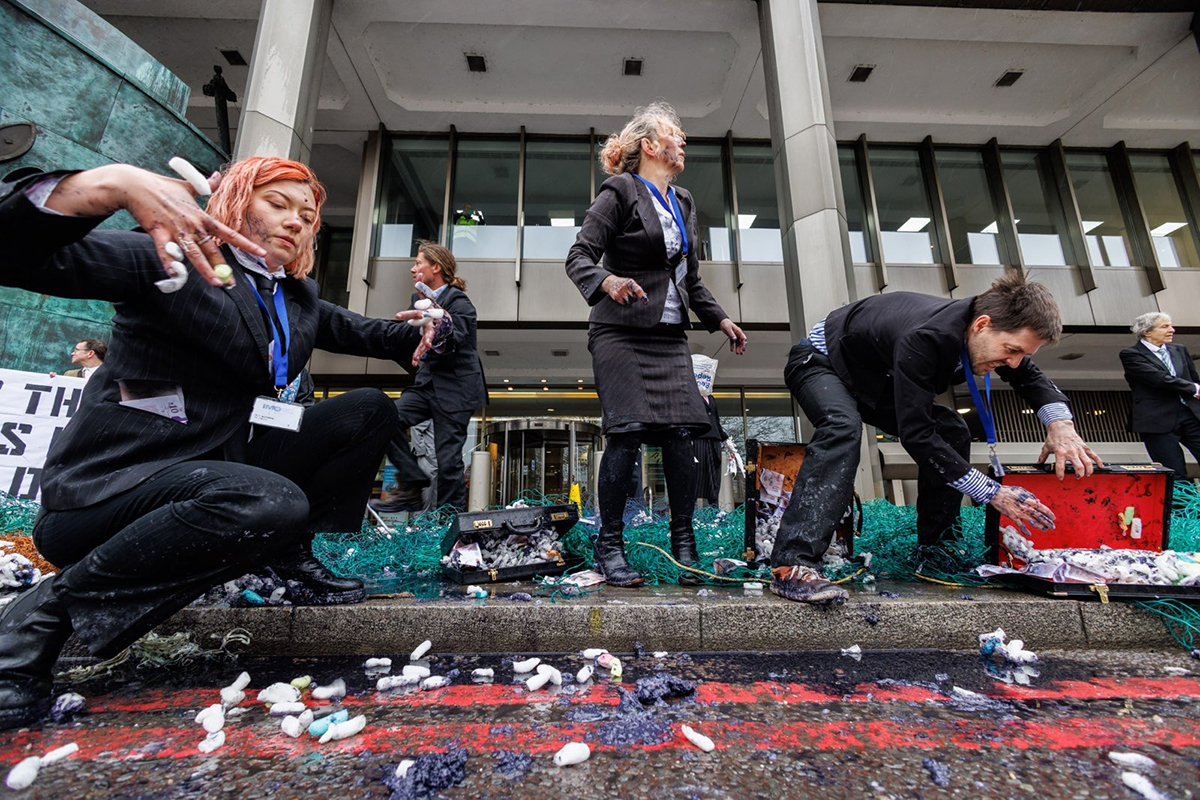
Ocean Rebellion demands:
The UN must form a new, transparent, and representative body to govern the Ocean for the benefit of ALL life. This new body must have the restoration and replenishment of the Ocean as its only measure of success. It should replace corporate power with people power. And it should represent the many forms of marine life which actually make the ocean a home.

Sophie Miller says:
“Ocean Rebellion has visited the IMO many times, each time with a different issue but all related to mismanagement and fossil fuels. The first time it was Wakashio, the oil disaster that decimated the Mauritian coast. Then it was Fossil fuel lobbying and ties to the Baltic Exchange and fake shipping laws. Next it was HFO and insider influence at the hands of actual representatives like ‘Captain Ian Finlay’. It just goes on – the IMO is useless, what’s the point of them meeting? Saving the carbon from a delegate’s travel pollution will make a more meaningful contribution to the climate crisis than having an IMO PPR (Pollution Prevention and Response) conference.”
Rob Higgs adds:
“I spend time at the coast picking out the plastics that wash up from idle members of the public and fishing. It’s on the increase, it’s always on the increase. It would be great to think something was being done at an international level – some care being taken. But I know that’s not the case – well not with the IMO in charge.”
Roc Sandford adds:
“As the seas die we die. And the seas are dying. This is being accelerated by idiotic schemes like using ‘scrubbers’ – Ocean acidification is a devasting issue and this plan will add to it. When Oceans cross a nearterm acidification threshold it really is all over, not just for marine life but for all life (that’s us as well). What’s wrong with banning Heavy Fuel Oil? We need to stop thinking business as usual and start taking the IPCC report seriously, before it’s too late.”
Clive Russell adds:
“The UN talks a great talk. The International Maritime Organisation and International Seabed Authority, both UN bodies, are unfit for purpose. Both are totally corrupted by industry and both govern the Ocean on behalf of industry. We are living in an age of unprecedented ecological breakdown, the UN must recognise this by governance not just in words.”
Suzanne Stallard adds:
“Plastic waste is an environmental and social crisis that needs to be addressed from source to sea and we ask delegates at the IMO PPR to step up to this demand. We urgently need to slash plastic production, particularly for plastics not reusable or recyclable, promote alternative materials that can be reused and set better standards for waste collection and capture, instead of transporting our waste across the ocean. Get plastic out of the seas”.
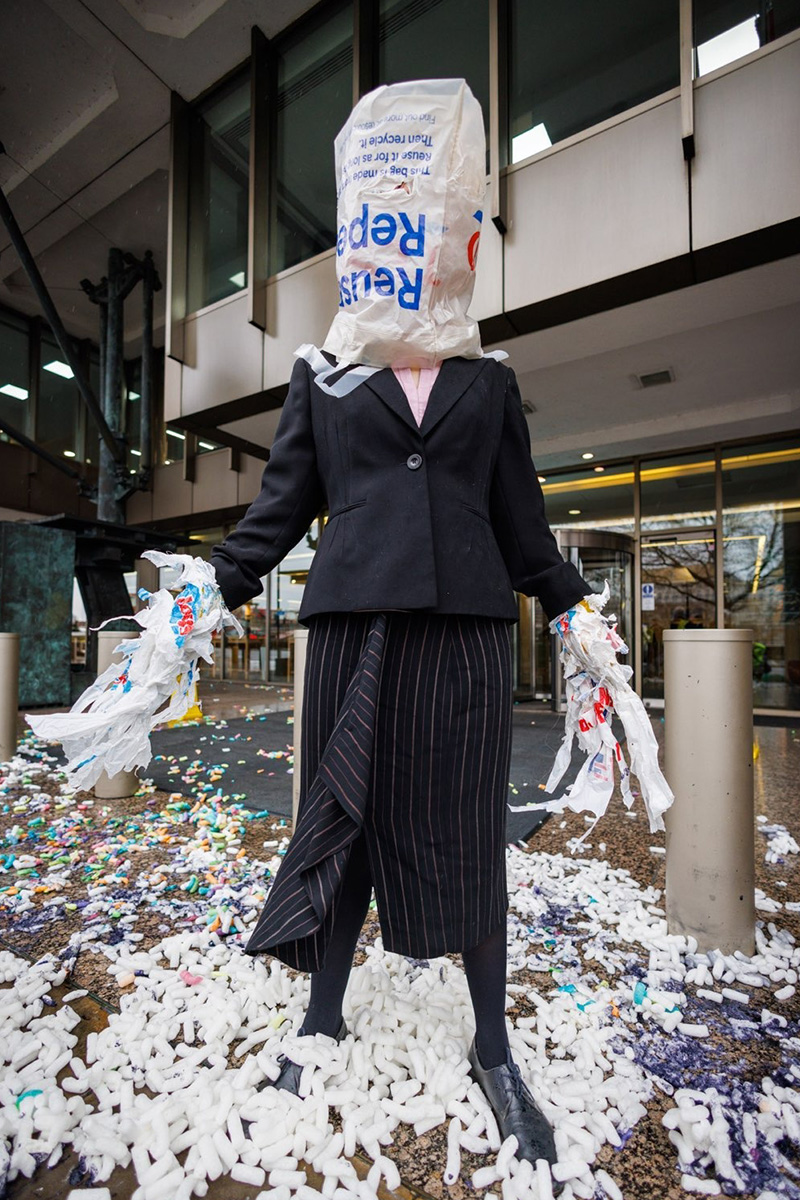
Photos from top: 1, 4 and 11 by Joao Daniel Pereira. 2, 3 – 10 and 12 by Crispin Hughes.